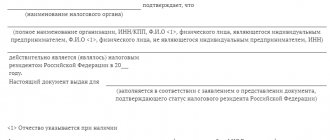Forced liquidation of a legal entity is the liquidation of an enterprise through a judicial procedure. Carried out on the basis of a claim from authorized bodies. Typically, forced liquidation of a legal entity is carried out in a situation where this person has already conducted some kind of commercial activity, but in some cases it is also possible to liquidate an LLC with a zero balance.
The initiators of forced liquidation of a company can be:
- Registration authorities (in case of incomplete payment of the authorized capital, non-compliance of the constituent documents with the stated requirements, etc.).
- Prosecutor's office (in cases where this is necessary to protect the rights of citizens, the interests of the state and society).
- Tax authorities (if the enterprise grossly violates the current tax legislation, etc.).
- Antimonopoly authority (in the case where the company conducts activities aimed at restricting competition).
- Central Bank of the Russian Federation (if the enterprise carries out banking operations without an appropriate license).
- State body that controls the activities of non-state pension funds (if the company operates without a license).
- Any interested organization or individual (if the company has a debt sufficient for liquidation).
Most often in practice, liquidation of an LLC occurs on the initiative of the tax inspectorate. The liquidation of an LLC with a zero balance is no exception in this case - in this case, registration errors usually become the cause of action.
Suspension of liquidation of a legal entity: reasons and grounds
On what grounds an inspection and stop of the dissolution of an LLC can begin is regulated by the Civil Code. We list some of the reasons provided by law for suspending the liquidation of legal entities:
- the information submitted for registration contradicts the information in the documents of the territorial authorities;
- a liquidator is involved, about whom a record of unreliable information was made in the Unified State Register of Legal Entities;
- the liquidator has been brought to administrative responsibility for an offense that consists of failure to provide or provision of unreliable, knowingly false information about the company, and the punishment period has not yet expired;
- the interested party has raised objections to the upcoming procedure.
The suspension of liquidation of a legal entity may occur on the basis of an application submitted by creditors. This happens if the company has debts and creditors are able to document their claims. However, the LLC owners themselves have the right to write a similar statement if they have good reasons for stopping the procedure.
The arbitration court also has the right to slow down the abolition of a business. Creditors should contact it if they have not managed to stop the procedure through the tax authorities. In this case, lawyers are preparing a claim to the inspectorate to declare the decision to abolish the LLC invalid. Also, individuals and enterprises to which the business has debt obligations can demand interim measures from the authorities against the debtor. Such measures include, for example, the seizure of bank accounts.
The arbitration court has the right to stop the procedure due to the debtor’s bad faith: filing an incorrect balance sheet or offenses associated with changing the name of the LLC. The reason may also be the fact that the company’s creditors were not notified of the procedure for its liquidation, that is, the liquidation takes place in violation of the requirements of the law. If the company does not have enough money to pay off its debts, the liquidation commission must declare bankruptcy.
What should a creditor do when liquidating a debtor’s business?
One of the reasons for suspending the liquidation of a legal entity by the tax authority is the inability to fulfill loan obligations. Therefore, we recommend that before lending funds, you check your counterparties: will they be able to repay the loan, or is there a risk of declaring bankruptcy? Moreover, the founders of an LLC do not risk personal property in the event of business bankruptcy.
When the winding-up procedure begins, creditors receive notice. The Commission publishes information in the official press and sets a period within which borrowers can submit claims. This period does not exceed two months, so there is no need to delay. Creditors have the right to appeal to the arbitration court and demand to stop the procedure or recover losses from the liquidators.
In what situations can a winding up claim be filed?
As already noted, paragraph 2 of Article 61 of the Civil Code of the Russian Federation determines the conditions for both voluntary and forced liquidation of a legal entity. The rule defining the grounds for the forced liquidation of a legal entity is of a general nature and, as a rule, is subject to application in systematic connection with other legislative acts.
1. Failure to submit financial statements and tax returns to the tax authorities
This basis is perhaps the most common in disputes regarding the liquidation of legal entities. The tax authorities are trying to get rid of the notorious “ballast” in the form of a huge number of companies that have not submitted reports for a long time by filing claims for the liquidation of legal entities. The results of this work can hardly be called satisfactory, which, however, is not the fault of the tax authorities, who are forced in almost every case to present to the court a significant amount of evidence confirming the actual termination of the activities of the legal entity and the absence of its bodies or divisions at the address indicated in the state registration documents . The need for this was indicated by the Presidium of the Supreme Arbitration Court of the Russian Federation (hereinafter referred to as the SAC RF) in paragraph 10 of the Review of the practice of resolving disputes related to the liquidation of legal entities (commercial organizations) (hereinafter referred to as the Review), sent by information letter No. 50 dated January 13, 2000.
However, the problem of liquidation for failure to submit reports also worries many operating organizations, who fear that a private violation will not serve as a reason for unpleasant legal proceedings. It seems that such fears are unnecessary. The legislation provides tax authorities with the opportunity to respond to violations of reporting deadlines without resorting to such an extreme measure as liquidation of a legal entity. Indicative in this sense is the position taken by the Presidium of the Supreme Arbitration Court of the Russian Federation when issuing Resolution No. 9216/01 of February 27, 2002. When considering the case, it was established that the basis for filing a claim for liquidation of a legal entity was the fact of the legal entity’s failure to submit financial statements for 2000 (deadline - 04/02/2001), established by the act of a desk audit carried out on 04/03/2001, that is, the day after the the specified period. Leaving aside the ethical side of the behavior of the tax authority, we note the main thing: the Presidium of the Supreme Arbitration Court of the Russian Federation, overturning the decision of the court of first instance to liquidate a legal entity, pointed out the need to assess the nature of the violations committed and the consequences caused by them. Thus, we can say that a formal violation by a legal entity of the deadlines for submitting financial statements and tax returns in itself is not grounds for its liquidation.
2. Non-use of CCP
In contrast to the previously in force Law of the Russian Federation of June 18, 1993 No. 5215-1 “On the use of cash registers when making cash payments to the population”, Federal Law of May 22, 2003 No. 54-FZ “On the use of cash registers when making cash payments” settlements and (or) settlements using payment cards" (hereinafter referred to as Law No. 54-FZ) does not provide for the possibility of liquidating a legal entity for repeated failure to use cash register equipment. However, in correspondence with paragraph 2 of Article 61 of the Civil Code of the Russian Federation, Law No. 54-FZ does not exclude the possibility of filing a claim for the liquidation of a legal entity if its violation of the law is repeated or gross. The tax authorities have the right to bring such claims.
It should be especially emphasized that the fact of repeated or gross violation by a legal entity of the requirements of Law No. 54-FZ, while necessary for filing a claim for liquidation, is not sufficient for the court to satisfy such a claim. Thus, the Presidium of the Supreme Arbitration Court of the Russian Federation notes:
| In the example discussed in the information letter, the court refused to satisfy the claim for liquidation of a legal entity that had repeatedly failed to use a cash register, justifying this by the fact that the defendant was the only trading enterprise in the locality, and the liquidation of this enterprise could cause negative consequences for citizens living there. 3. Carrying out activities without a license The carrying out by a legal entity of activities subject to licensing, without a license, or in violation of licensing conditions, is considered to be one of the most reliable grounds for claims for the liquidation of such a legal entity. This circumstance is confirmed by the position of the Presidium of the Supreme Arbitration Court of the Russian Federation, expressed by it in paragraph 1 of the Review, communicated by information letter No. 50 dated January 13, 2000. At the same time, it seems necessary to note that the competence of the tax authorities does not extend to such cases. The bodies of the Ministry of Taxes and Taxes of Russia are not vested with the right to monitor compliance by legal entities with licensing conditions. The specified control functions in accordance with Article 12 of the Federal Law of 08.08.2001 No. 128-FZ “On licensing of certain types of activities” are carried out by licensing authorities. 4. Failure to comply with the law on bringing its constituent documents into compliance with the requirements of the law The formation in our country of a legal system that corresponds to changing economic relations has continued (or rather, continues) for more than one year. Many still remember such bizarre organizational and legal forms of legal entities as an individual (family) private enterprise, a limited liability partnership and even a small enterprise. The latter, however, was never an organizational and legal form, but represented a kind of flawed pseudo-legal structure. With the introduction of Chapter 4 of Part 1 of the Civil Code of the Russian Federation (from December 8, 1994), the organizational and legal forms of legal entities acquired the proper form. At the same time, legal entities registered before this date were ordered to bring their constituent documents into compliance with the norms of Chapter 4 of Part One of the Civil Code of the Russian Federation (Article 6 of the Federal Law of November 30, 1994 No. 52-FZ “On the entry into force of Part One of the Civil Code of the Russian Federation "). A similar order was subsequently given to those legal entities that were registered before the entry into force of the “core” federal laws. Taking into account the above, there are the following deadlines for bringing the constituent documents of legal entities into compliance with the requirements of the law:
In addition, individual (family) private enterprises and other enterprises not in state or municipal ownership, based on the right of full economic management, were subject to transformation into business partnerships, societies or cooperatives or liquidation until July 1, 1999. It is no secret that many legal entities have not fulfilled the requirements to bring their constituent documents into compliance with the requirements of the law on time. Of course, this violation is the basis for filing a claim for liquidation of a legal entity. At the same time, as judicial practice shows, courts take an extremely balanced approach to resolving such disputes. This was most clearly expressed in the position set forth in the Resolution of the Plenum of the Supreme Court of the Russian Federation and the Plenum of the Supreme Arbitration Court of the Russian Federation dated 02/05/1998 No. 4/2 “On the application of paragraph 3 of Article 94 of the Federal Law “On Joint Stock Companies”:
|
How long can the procedure be stopped?
The tax authority has a relatively short period of time to suspend the liquidation of a legal entity: a calendar month. It is impossible to pause the procedure for a longer period. The decision is made within 5 working days after submitting documents to the tax office.
The authorities send the decision to the LLC email address specified in the application. Information is also posted on the official government website. This condition is spelled out in Article 9 of the Law on State Registration of Legal Entities and Individual Entrepreneurs.
After the period allotted for the audit has ended, the suspension of the liquidation of the legal entity by the tax authorities is automatically considered completed. State authorities must either decide on registration or refuse it.
It is worth noting that the LLC has the right to provide written explanations during the process of suspending the liquidation of a legal entity in order to influence the audit. If state registration is denied, the company has the right to appeal the decision, but the time frame for filing an appeal is limited.
When terminating the activities of an LLC, it should also be taken into account that it is impossible to begin drawing up an interim balance sheet until the on-site tax or customs audit is completed, until the court decision comes into force. This issue is regulated by Article 20 of the Law on State Registration of Legal Entities and Individual Entrepreneurs.
Stages of closing a company
The procedure for compulsory liquidation of a legal entity involves the implementation of sequential actions. These include:
- initially, compelling reasons for conducting the process are discovered by any supervisory government agency, and this usually occurs as a result of an inspection of the company;
- a statement of claim is sent to the court, which indicates the need to close the organization;
- documents confirming the validity of the claims are attached to the claim;
- a court hearing is held at which all evidence is examined;
- a court decision is made regarding the need to forcibly close the company;
- The registration authorities are notified of the decision made, for which they receive a written notification within three days, since if the tax inspectorate is not notified, the responsible persons of the court will be held accountable;
- after this process there is no opportunity to make any adjustments to the company’s statutory documentation;
- a liquidation commission is appointed, as well as its chairman;
- it is the members of this commission who manage the organization until its final closure;
- notification of the liquidation of the company is submitted to the media, which gives each creditor the opportunity to learn about the planned process;
- the company's employees are notified in writing of the closure of the enterprise, after which they are officially dismissed;
- over the next three months, various inspections of the company are carried out, the main purpose of which is to identify serious violations;
- If necessary, officials of the company are held accountable, which can be not only administrative, but also criminal;
- settlements are made with creditors, and if there is not enough cash for this, the organization’s property can be sold;
- if any funds remain after the sale, they may be confiscated or distributed among the founders;
- all property belonging to the enterprise is described;
- after all mandatory processes have been completed, a final liquidation balance sheet is formed, in which the presence of debt is not allowed;
- information is entered into the Unified State Register of Legal Entities on the termination of the company's activities.
Most often, forced liquidation of a legal entity is initiated by the tax authority. The procedure is carried out after an on-site or desk inspection, the results of which reveal numerous serious violations. At the end of the process, a notice of liquidation of the legal entity is issued to the management of the company. The same document is sent to the court.
Qualified assistance in liquidating a business
VALEN will help carry out the company liquidation procedure efficiently and in the shortest possible time. We offer comprehensive support for enterprises that are planning or have already begun liquidation, we help with the preparation of documents and their submission to official authorities.
Contact us and we will provide detailed advice on issues that arise when the tax authority suspends the liquidation of a legal entity. To contact our lawyers, leave a request on the website or dial the numbers listed at the top of the page!
Implications for management and founders
You can’t just abandon a company in the hope that the tax authorities will exclude it from the register and you will save money or avoid paying debts. The consequences for founders and managers may be as follows:
- If the founder owned a 51% stake in a company that still had debts to the budget, and did not bother to pay them, then he will be prohibited from registering new enterprises for three years;
- The founder will not be able to manage another company;
- The founder will be prohibited from becoming a member of other LLCs.
Identical consequences will occur for the general director of a legal entity closed by the tax authority. To avoid troubles, call the lawyers of the MIP group, who will help with the preparation of documents and prevent consequences.
Similar services on the topic
- Closing an individual entrepreneur in 2020 step by step from the leaders
- Application for closure of individual entrepreneurs from leaders
- How much does it cost to close an individual entrepreneur in 2020 from the leaders
- Documents for closing individual entrepreneurs from leaders
- Liquidation of individual entrepreneurs on a turnkey basis from the leaders
- How to close an individual entrepreneur with debts - help from leaders
- Stages of liquidation of a legal entity from leaders
- Methods for liquidating a legal entity from leaders
- Reorganization and liquidation of legal entities
- Grounds and procedure for liquidation of legal entities from leaders
- Liquidation of a legal entity from leaders
- Close IP, service from leaders
- Close an individual entrepreneur online through the tax office from the leaders
- Help in closing IP from leaders
- Close individual entrepreneur, service in Shchelkovo from leaders
- Liquidation of JSC from leaders
- Close an individual entrepreneur through the MFC - help from leaders
- How to close an individual entrepreneur - help from leaders
- Liquidation of an LLC without verification
- Liquidation of the enterprise
- Close an LLC in Moscow
- Closing an LLC in the absence of activity
- Closing an LLC with one founder
- Close an LLC without verification
- Closing an LLC
- Liquidation of an LLC in 2020 from the leaders
- Closing an organization - help from leaders
- Closing a representative office of a foreign organization 2020 - help from leaders
- Liquidation of an organization - help from leaders
- Liquidation of a credit organization from leaders
- Closing an LLC, cost from the leaders
- Liquidation of the company from leaders
- Voluntary liquidation of LLC, cost from leaders
- How much does it cost to close a company - help from leaders
- How much does it cost to close an LLC from leaders
- How to close an LLC - help from leaders
- LLC liquidation professionally from the leaders
- Liquidation of an LLC with debts from the leaders
- Liquidation of LLC through offshore from the leaders
- Forced liquidation of LLC tax consequences for founders - help from leaders
- Liquidation of LLC FTS from the leaders
- Liquidation of zero LLC from leaders
- Application for liquidation of LLC from leaders
- Termination of LLC activities from leaders
- Cancellation of LLC liquidation from leaders
- Liquidation of LLC through sale from leaders
- LLC liquidation step by step from the leaders
- Decision on liquidation of LLC from leaders
- Liquidation of LLC without debts from leaders
- The procedure for liquidating an LLC from the leaders
- Turnkey LLC liquidation from the leaders
- Alternative LLC liquidation from leaders
- LLC liquidation deadline from leaders
- Voluntary liquidation of LLC from leaders
- Liquidation of LLC from leaders
- Liquidation of the company from leaders
- Professional LLC liquidation from the leaders
- Elimination of firms from leaders
- Liquidation through bankruptcy from the leaders
- Liquidation of a legal entity from leaders
Grounds for judicial liquidation
The grounds for the liquidation of an LLC, like other companies, are specified in the Civil Code of the Russian Federation and other regulatory legal acts, while they are divided into groups according to the competence of the authorities authorized to go to court when legal facts are identified that allow this to be done.
The following circumstances may be grounds (reasons) for forced liquidation:
- Data that during the creation and registration of the LLC there were violations of the law that make it possible to invalidate the registration. Illegal use of a legal address, violation of the procedure for creating an LLC, its establishment by a person who does not have the right to do so, submission of false or erroneous information during registration and other facts may lead to an application to the court to invalidate the registration of the company. Receiving a positive court decision in this regard becomes the basis for a second lawsuit - for forced liquidation. In most cases, both processes are initiated by the tax authority or the prosecutor's office, sometimes the first process is initiated by a person whose rights and interests were violated as a result of the creation and (or) registration of an LLC.
- Carrying out activities, including certain types of them, without special permission, the receipt and availability of which is mandatory in this case. Here we are talking about the lack of a license, SRO access to certain work or, in general, membership in a self-regulatory organization, which indicates the illegality of the activities carried out by the LLC. The initiator of the claim may be the tax authority, the prosecutor's office, investigative bodies, local and other authorities, control and supervisory authorities, whose competence allows in the current situation to file a claim for the forced liquidation of the LLC.
- Carrying out activities that are prohibited by law, violate the Constitution of the Russian Federation, or are carried out in repeated or gross violation of regulations. This is the most extensive group of grounds for filing a claim for the forced liquidation of an LLC, the list of which in the Civil Code of the Russian Federation is defined only in general terms. The initiator of the claim may be a government authority within its competence and based on the nature of the violation identified. Some of the common reasons for forced liquidation for this group of grounds are repeated failure to submit regulatory reports, illegal financial transactions, non-compliance with the procedure for payment of authorized capital, trafficking in prohibited items (drugs, weapons, etc.), and other violations of restrictions, prohibitions, and established procedures.
- Significant difficulties or impossibility of carrying out activities, and in general the impossibility of achieving the goals for which the Company was created. This group of grounds is the only one that allows a member or members of an LLC to file a claim for forced liquidation of the company. True, its application to any commercial enterprises, as a rule, is considered only theoretically. If the above reasons exist, it is easier, faster and more profitable to voluntarily liquidate the company than to go to court. Liquidation of an LLC by court decision, taking into account its peculiarities, will only complicate everything and entail additional costs.
As applied to LLCs, special grounds for forced liquidation include circumstances that impede the conduct of activities in this organizational and legal form and are not eliminated in the manner prescribed by law. These include, for example, the provisions of the law on the inadmissibility of the number of participants exceeding 50 persons or the appearance of an LLC in the status of the only participant of another Company, which also has only one participant (shareholder). Violation of these provisions does not give rise to an unconditional basis for liquidation of the company, but puts it before a choice - either to eliminate the violation, including through transformations, or to put itself at risk of forced liquidation.







